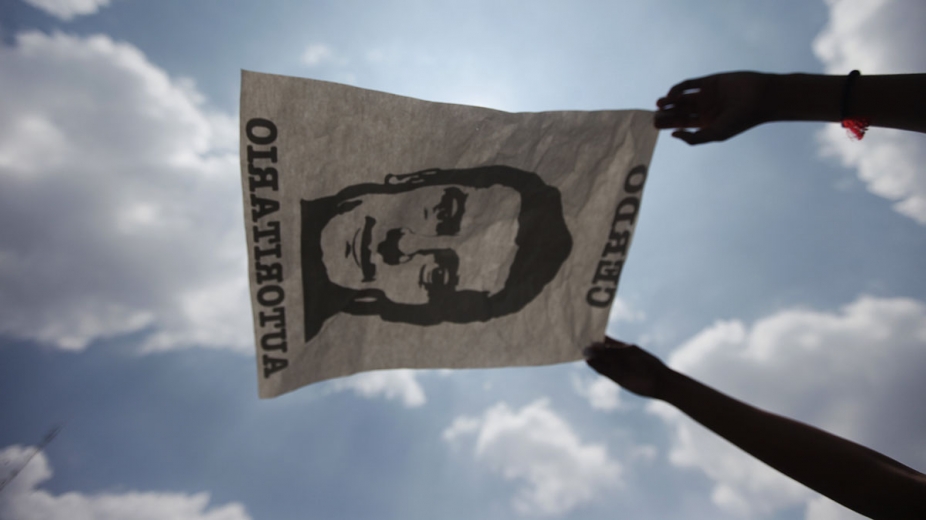by Dan La Botz
December 10, 2012
This article was originally published by New Politics.
Enrique Peña Nieto of the Institutional Revolutionary Party (PRI), Mexico’s new president who took office on December 1, carried out a shrewd political maneuver the very next day, convincing the opposition parties to join him in signing a “Pact for Mexico,” calling for the completion of the neoliberal transformation begun in the 1980s. Leaders of the conservative National Action Party (PAN) and the left-of-center Party of the Democratic Revolution (PRD) agreed to join with the president in carrying out “reforms” of telecommunications, education, and state and municipal finances.
Representatives of the Mexican Ecological Green Party (PVEM), a satellite of the PRI, were also present at the signing as observers. The president also called upon employers and labor unions, academics and the media, and the society in general to join together “so that this will be a pact for Mexico.” In the past, such national unity pacts have only been agreed to in times of national emergency, such as during World War II. The pact shocked and infuriated many on the Mexican left, who felt betrayed by the PRD’s complicity with Peña Nieto.
Youth Engage in Violent Protests
While President Peña Nieto was taking the oath of office in the Congress the day before, youths responding to the call of the #YoSoy132 student movement and the National Convention against Imposition (that is, the imposition of Peña Nieto and the PRI) engaged in small but violent protests outside, where they fought police with clubs, stones, and Molotov cocktails. The young protesters, many dressed in black, some painted with the circled “A,” wearing ski masks and bandannas to hide their identity, broke shop windows, trashed at least one automobile, and destroyed cash machines. Some labor union members and #YoSoy132 members, who broke off from the protests when they turned violent, reportedly attempted to assist the injured.
The protests resulted in over 100 injuries, some of them requiring hospitalization; one person was critically injured. Police arrested and charged 69 for involvement in the riot, though lawyers for some of the accused say that they were either involved in peaceful protests or were simply innocent bystanders. The small, violent protests this year stood in stark contrast to the hundreds of thousands who protested peacefully for weeks, just six years ago. They also suggest serious problems in the #YoSoy132 movement, which issued a call for protests but was unprepared for the violence that ensued.
Not far away, hundreds of teachers from the National Coordinating Committee of the Teachers Union (la CNTE) were contained by police on a street downtown and kept from joining labor demonstrations. The labor organizations, angry about the recent passage of a pro-business labor reform, had organized peaceful protests.
Inside, Peña Nieto delivered an address in which he promised to restore peace to the beleaguered nation, establish the bases for economic growth, overcome the country’s social backwardness, raise the standard of living, and create a middle class nation.

Reaction to Peña Nieto’s Political Maneuver
Remarkably, Peña Nieto, whose election had been challenged as corrupt and fraudulent by the left, succeeded in convincing Jesús Zambrano, leader of the PRD, to join in signing his national unity pact. The result has been an immediate uproar in the PRD, leading two of its Congressional deputies. congressmen, Gerardo Villanueva and Rodrigo Chávez, to resign from the party, becoming independent representatives for the moment, though they apparently plan to join the Movement for National Regeneration (MORENA) led by Andrés Manuel López Obrador.
Leaders of other factions of the PRD, such as René Bejarano Martínez, accused Zambrano of having entered into the pact without consulting the party leadership. Many speculate that the PRD will be shattered by these developments, though the party’s ballot status and organizational resources make that unlikely.
Dan La Botz is a Cincinnati-based teacher, writer, activist, and member of Solidarity.
